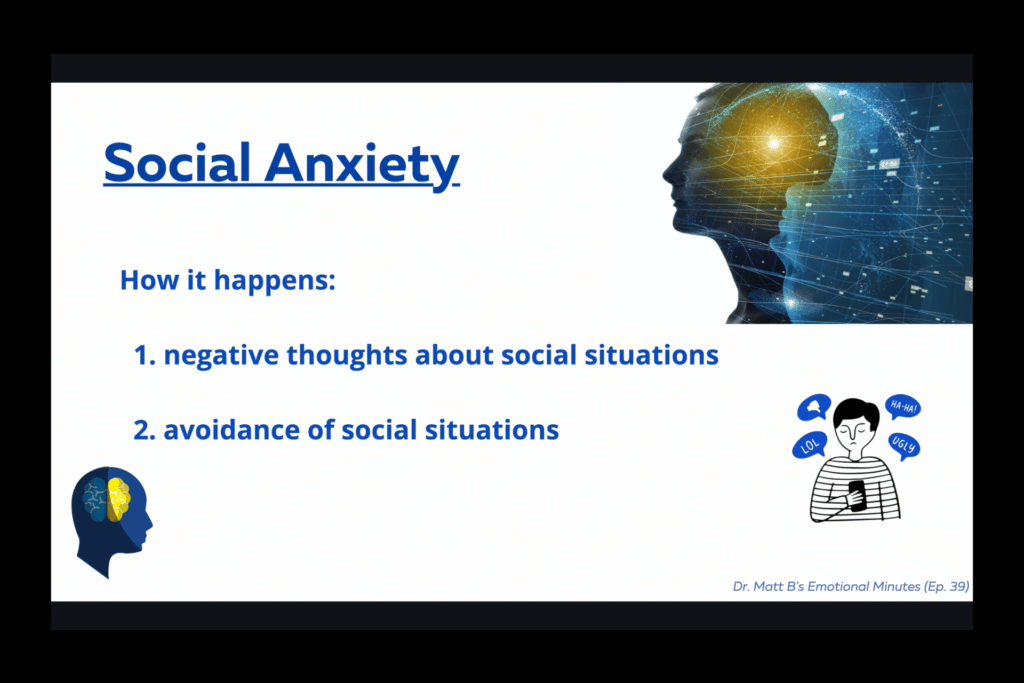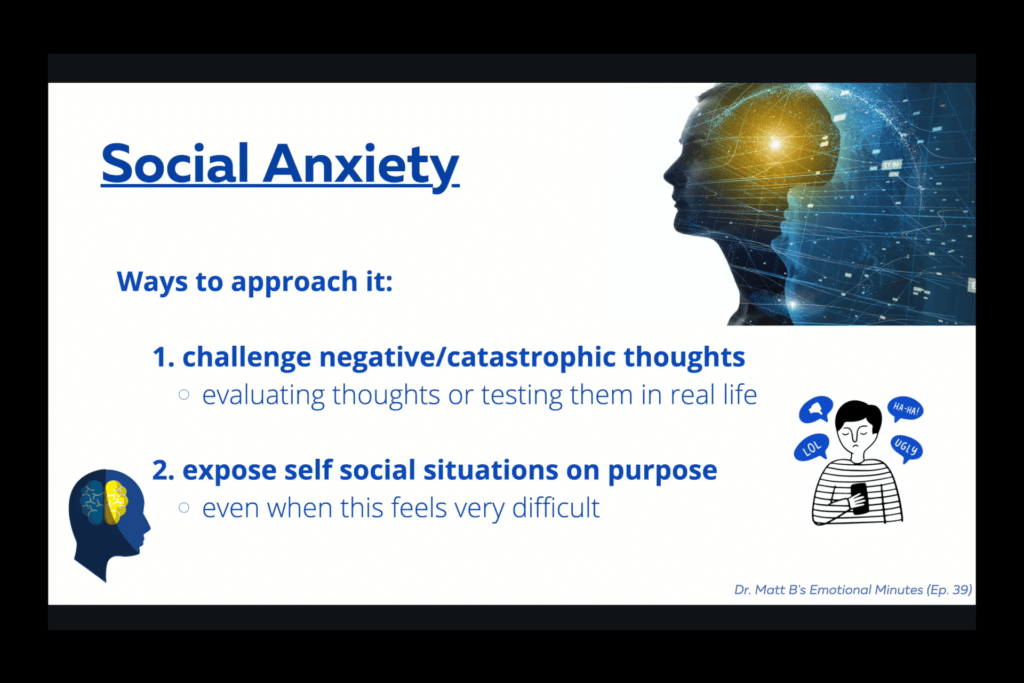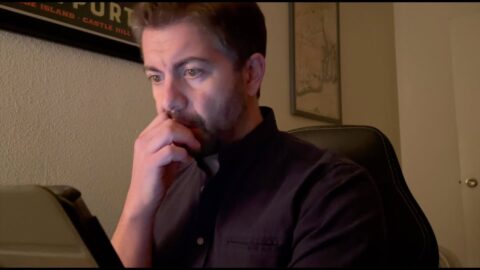Social anxiety can be a difficult experience for many people. If you experience social anxiety, you are certainly not alone – it is actually extremely common! But there are effective ways to approach social anxiety to make it easier to enter social situations — and even enjoy them.
Check out this video for ways to cope with social anxiety. And check out mattbphd.com for more mental health info! There is also a good book on how to deal with social anxiety and other forms of anxiety. There is another good book on reasons anxiety occurs (including in the COVID-19 era) and some methods to cope.
Hi, I’m Dr. Matt B, and these are your Emotional Minutes. I’m on a busy university campus, which is a place where there are constant social interactions. It’s also a chance for a lot of people to experience anxiety about interacting with other people. Now, social anxiety, or social phobia, is one of the most common psychological difficulties or disorders that people experience. Some estimates even say up to about 34% of people experience some level of anxiety when interacting with others.
Social Anxiety Characteristics
There is a whole set of symptoms and diagnostic criteria for social anxiety. However, there are two main things we look for.
The first is whether people have a lot of catastrophic thoughts about what might happen in social situations. For example, whether or not they believe they will be judged, laughed at, left out, or something like that in social situations.

The other thing that we see a lot with social anxiety is avoiding situations because of these beliefs. However, by avoiding these situations, they never get the chance to convince themselves that those bad things will not happen. So, avoidance maintains the anxiety and keeps it going.
Challenging Social Anxiety Inducing Thoughts
There are several ways to approach social anxiety. The first is to look at people’s thoughts about what could happen in the situation and identify them. After identifying them, challenge what those thoughts are telling you.
Let’s consider this example. You believe that if you go into this situation, you will say something stupid, and everyone will laugh at you. To combat that negative belief, look for evidence for whether or not that’s the case. You can base it on past experiences or how often people might actually do that. This can help challenge thoughts or beliefs about what could happen in a social situation. Over time, this can make them more comfortable with entering those situations.

Countering Avoidance
Another thing we might do is try as best we can to not engage in avoidance. So do not avoid those situations even though the urge to avoid comes up and you feel very anxious in those moments.
If you are experiencing anxiety in social situations, the idea is not to avoid them. Instead, seek them out to see what happens. Once in them, allow yourself to be anxious. Doing this helps people find out whether or not some of the things they believed would come true actually do. What this does is retrain the brain to find evidence against the ideas you have in your head. Through this, people learn that there is nothing inherently threatening in a social sense.
Extreme Ways to Counter Avoidance
One exciting way of facing anxiety-inducing situations is to actually do the worst thing they think could happen on purpose. For example, buying a cup of coffee with pennies or walking around city streets with a silly hat on. And then just see what happens. You might be feeling some anxiety after reading that. What this exercise does is have you do the thing you think is the worst-case scenario. This allows you to see what really happens and whether or not it was so bad.
These methods of countering avoidance and doing something else are called exposure methods or exposure therapy.
I hope talking about social anxiety or social phobia, diagnostic criteria, and some ways to approach it was helpful. If you experience social anxiety and feel like it is getting in the way of your life, I always suggest reaching out to a mental health provider.
If you have an interest in this and ways to handle social anxiety, check out these books. This one is on the reasons anxiety occurs. There is also a good book on how to deal with social and other forms of anxiety.
I’m Dr. Matt B, and these are your Emotional Minutes. We’ll see you next time.



